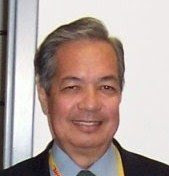Friday, October 15, 2010
Aquino’s Missed Opportunity: An Exercise in ‘Wishy-Washy’
This is a rewrite of an earlier column. This one focuses mainly on
the Aquino findings and its implications
We are close to two months since the infamous “Mendoza-cum-police-incompetence-cum-egg-in-our-faces” massacre of Hong Kong tourists. Finally, President Aquino let known his “findings” and “actions”. Does anyone get the impression that here a “mountain labored forth and sired a molehill”?
Seven or so weeks of inquiries, investigations, back-and-forths in media speculation, coupled with promises of “repercussions” and what did we come up with?
Eight officials have been “tagged” as the culprits. Yet the way it has been explained is a demonstration of confusion and indecisiveness. There seems to be a scheme to “spread out” the blame so that no one person is really burned too badly. That, hopefully, misery will love company. It revealed an indecisiveness not worthy of a country’s president.
“Maybe this, probably that, perhaps here, could be there,” is what I seem to hear as the verdict for the heinous and tragic loss of life. For example, why is Merciditas Gutierrez, the ombudsman, held liable in this case “because she enraged” Mendoza by not being “clear” about his case? Why was it even necessary to go to her for a remedy?
No judge in the civilized world would promise a terrorist-hostage taker that a decision would be reversed, otherwise there’ll be hostage taking every week.
The position of the government, represented by the chief of police, should have been, and must always be that “We do not negotiate with terrorists”! “ We will gladly hear your side but only after you let the hostages go and put down your weapons,” is a statement that should have been made very clearly and resolutely.
The media people who had access to and also gave a venue for the terrorist; why were they even allowed close to the scene? Perhaps because Manila’s corrupt police find they must cater to the media lest some of their daily shenanigans get exposed, or that perhaps by extending the media unusual or unprecedented access the latter will treat the police leadership with kid gloves, maybe even portray them as heroes? The police could have kept the media ten blocks away from the scene. Life or death emergencies, acts of terrorism and general mayhem that threatens lives and the public order justify certain levels of restriction over media access and activity. “The need to know” concerns can be addressed and satisfied after the crisis is resolved and danger to lives dissipated. A case can be made that there is a symbiotic, and filthy, interaction between police and media on a daily basis hence in critical situations like the hostage taking, the “tayo-tayo” culture gets into play.
It is unfortunate that President Aquino failed to seize this moment, this opportunity to usher in true and far reaching reforms in an area of life that touches most Filipinos – their police forces. He should have taken Rahm Emmanuels’ oft quoted advice that, “You never let a serious crisis go to waste. And what I mean by that it's an opportunity to do things you think you could not do before”.
I had hoped that in dealing with the August 23 carnage that President Aquino would use the occasion to once and for all institute strong, serious, effective and a much needed revamp of our police services. Not just a change in personnel but in the very character of our law enforcement institutions. That he would finally work to rid our police forces of the gross incompetence that has come about because of the corruption, nepotism and lack of professionalism in that institution. It is sad and tragic that he has instead taken the “wishy-washy” approach. And so the zarzuela continues, the “moro-moro” lingers on. Entertaining perhaps, yet hardly funny.
Aside from firing the police brass he also could have then come up with a clear “code of conduct” for our police officers that emphasizes service to all citizens regardless of stature in life, and an uncompromising stance against any and all criminality regardless of who is involved. He could have listed down the “top ten” principles that policemen must adhere to and have it posted at all precincts. And before the start of the each shift the police officers would verbally affirm their commitment by reciting these principles.
He could then have also told the citizenry to document any corruption they hear of
or see and send it to Malacanang. Those cell phone cameras/videos could really come in handy.
If he had used all his power, both as the official head of state, and as a person respected by all for his undisputed integrity, he could have ushered in a much needed renaissance for our country. The country is behind him. He has a mandate to clean government up. The Manila police department would have been a very good place to start. Needless to say he and the country missed an opportunity to take that serious and credible first step to reversing the decades old problem of police corruption, and what we are left is this dreadful feeling that more crises will come and the mistakes that characterized the massacre of the Hong Kong tourists may well repeat itself.
Subscribe to:
Post Comments (Atom)
.jpg)
.jpg)
No comments:
Post a Comment